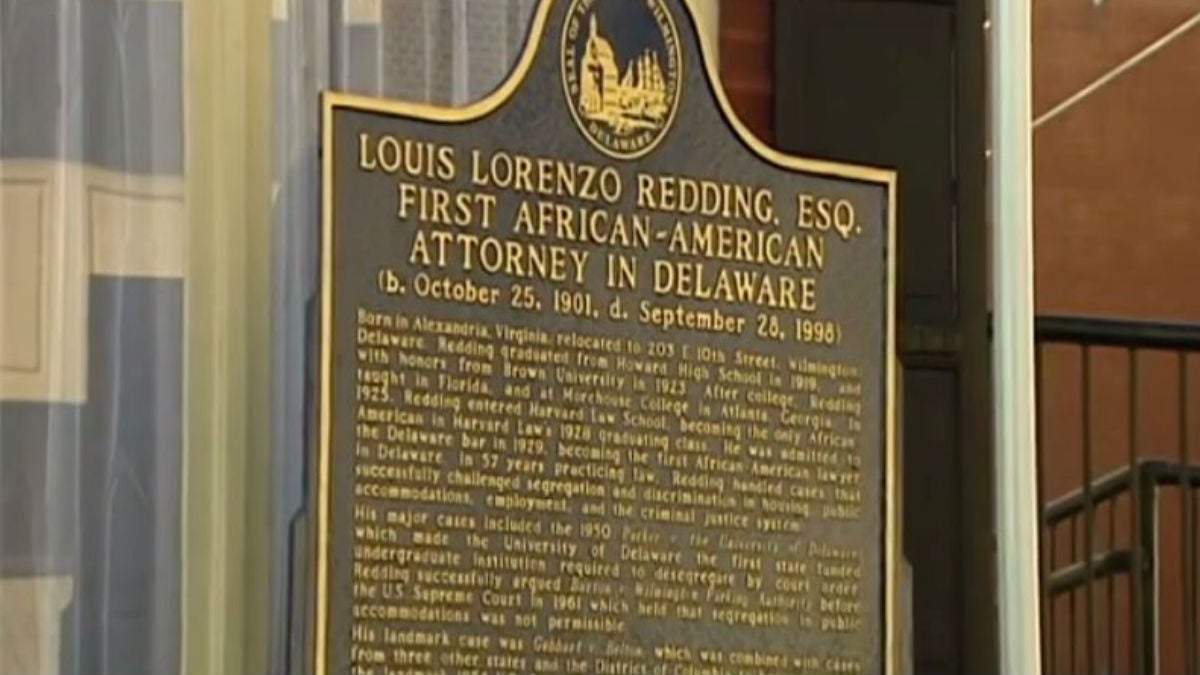Marker recognizes Wilmington civil rights icon

(Gary Lindstrom/WHYY)
A historical marker now stands outside Louis Redding’s Wilmington home, helping to tell the story of Delaware’s first African American attorney.
State and city leaders gathered Tuesday morning along East 11th Street on Wilmington’s Eastside to dedicate the historical marker in front of Redding’s home. The home has since been transformed into a museum by the Redding House Foundation.
“Our mission is to provide a space and a forum that brings remembrance to the Redding family and to the history of the African American community as part of the state’s history,” said Dr. Alton Williams, president of the Redding House Foundation’s board of directors. “We strive to educate everyone, especially the young, about the trailblazing nature of what the Redding family accomplished as embodied in the work of Louis to secure an integrated and fair society.”
After becoming Delaware’s first African American attorney in 1929, Redding’s most famous case was Gebhart v. Belton, which was combined with other cases to become part of the landmark Brown v. Board of Education Supreme Court case which changed the federal policy of “separate but equal” forever. Redding also represented Brooks Parker in the 1950 Parker v. University of Delaware case ,which required UD to become the first state-funded undergrad school to be desegregated by court order.
“This needs to be a place that we reflect on why we put racism to bed,” said Redding’s daughter Rev. J.B. Redding. “We need to look at not just the beauty of [Wilmington’s] Eastside, but the issues that call us the murder metropolis. History should shine a light on today, not just be a dusty, musty remembrance.”
The historic marker is part of an effort by Wilmington City Councilman Darius Brown, D- 3rd District, to highlight Eastside’s historic and cultural legacy.
Other figures still to be honored in that endeavor include Herman Holloway, Sr., who became Delaware’s first African American state Senator in 1964 and James Sills, who became Wilmington’s first African American mayor in 1992.
WHYY is your source for fact-based, in-depth journalism and information. As a nonprofit organization, we rely on financial support from readers like you. Please give today.





